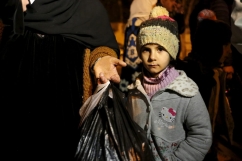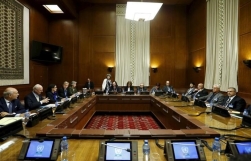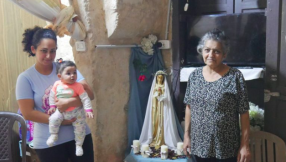More than double the number of civilians are living in beseiged towns in Syria than the UN has recorded, according to aid organisation Siege Watch.
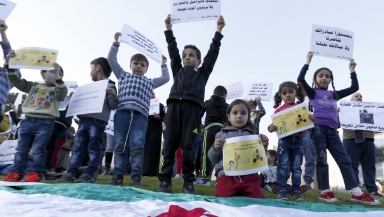
More than one million Syrian civilians are living under blockade, according to a report by the organisation – a joint intiative of PAX and The Syria Institute dedicated exclusively to providing accurate information on conditions in Syria's besieged communities.
"The human suffering in the besieged towns and cities of Syria has now reached an almost medieval scale," Jeremy Moodey, CEO of Embrace the Middle East told Christian Today.
"The 'starve and surrender' approach being adopted is without doubt a war crime," he added.
Madaya is among the towns facing starvation. Although residents received aid in January after photos and videos of emaciated inhabitants were released, these supplies are already running out.
"Today I ate grass, to make the aid last longer," a young teacher and activist in Madaya told the Guardian. "Some families have already run out. In 10 days most of us will have nothing to eat."
Sadly, when the aid did arrive, it was already too late for some. "Since the aid entered Madaya, 16 men and women have died, and four children," said the teacher, who asked not to be named.
In December 2015, Madaya did not appear on the UN's list of areas under blockade. Its status has now been altered, which was intrinsic to the efforts made in January. However, this level of suffering is not limited to the south-western town.
Mouadamiya, a suburb of Damascus, was not on the UN's list in December either, despite 44,000 people living under siege, Siege Watch said. Reuters reports that the International Committee of the Red Cross consider the community besieged and recently delivered aid for thousands.
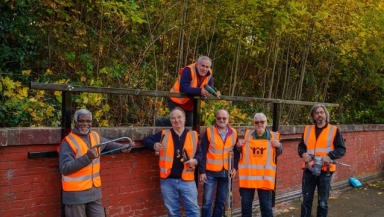
A residents' committee accused the UN of "ignoring the suffering of civilians... until [they] are at the brink of death," in a Facebook post on 3 February.
The UN has now warned that the figure of one million residents living under siege in Syria is at risk of rising if supply chains to Aleppo are cut off by the government troops.
"If the government of Syria and allies sever the last remaining flight route out of eastern Aleppo city, it would leave up to 300,000 people still residing in the city cut off from humanitarian aid unless cross-line access could be negotiated," it said in an emergency bulletin on Monday.
"In order to alleviate the suffering of these people, we need those governments who have influence, including the UK, to ensure the real application of UN security council resolutions which allows for the delivery of humanitarian aid to all those who need it no matter where they are," Lousie Finah, Christian Aid's advocacy officer for the Middle East told Christian Today.
"After five long years of conflict it is time to put the people of Syria first."
Siege Watch said that the UN has failed to register over half of the blockades occuring in the country, and its report found that "the Syrian government and its allies are by far the biggest perpretrators of sieges against Syrian civilians."
It highlights that this method of war – in which the residents are forced either to starve or surrender – is illegal.
"The deliberate starvation of civilians is also a grave breach of the Fourth Geneva Convention and therefore a war crime," it said.
That people are living outside the reach of aid "is completely unacceptable", Kathleen Rutledge, Tearfund's Middle East response director told Christian Today. "There is a need for redoubled efforts to reach a political solution to this conflict, or the atrocities will sadly continue."
Deir ez-Zor is another beseiged town in Syria. ISIS is starving out an estimated 200,000 people, but government forces have refused to allow aid flights to the civilians.
The UN has reported Deir ez-Zor as being besieged by ISIS, however "residents living there feel that they are besieged by both ISIS and the Syrian military," Seige Watch said. "The Syrian government's actions towards the beseiged neighbourhoods support this claim."
"We are in the 21st century, not the Middle Ages," said Jeremy Moodey. "The international community can and must do much more to end this humanitarian catastrophe.
"First by insisting on genuine all-party peace talks in Geneva; second by committing to the humanitarian aid which is so desperately needed; and third by not contributing itself to the violence and misery. Russia, which actually stepped up its airstrikes against some of the besieged cities as the last round of talks got underway, should particularly take note."










